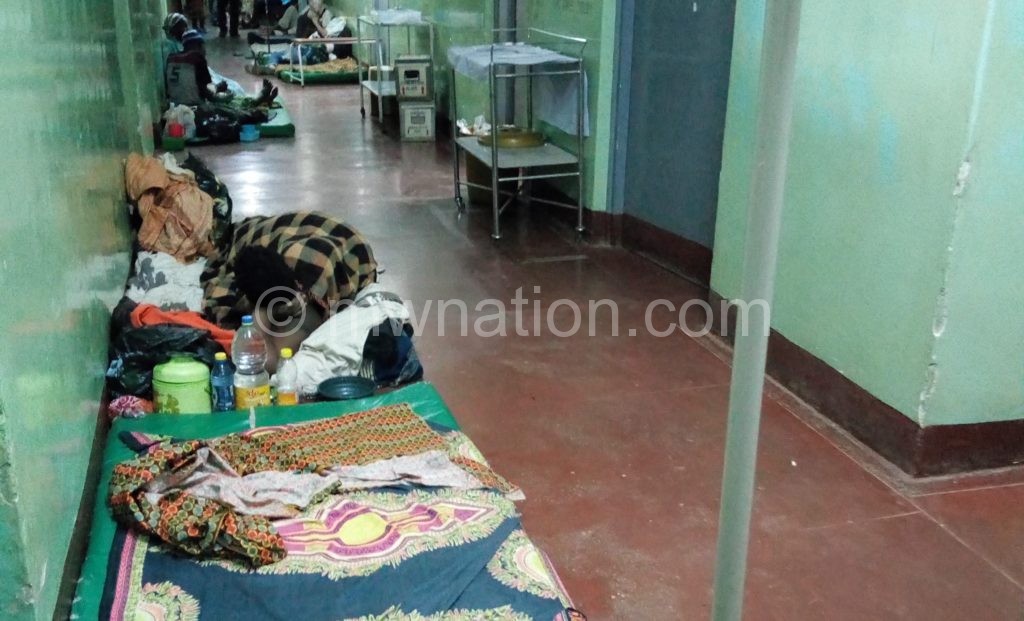Staff shortage cripples health delivery at Qech
Shortage of health personnel has crippled service delivery at Queen Elizabeth Central Hospital (Qech) in Blantyre following a boycott over unpaid allowances by some nurses who are on temporary contracts.
A visit to some of the wards at the hospital by The Nation on Sunday and Monday also established that there were few medical workers in most of the wards, including wards 5B and 6A, which had only one nurse on duty each.

For instance, during the visit to Ward 5B, which is a female surgical zone, a single nurse was attending to about 52 patients.
According to some nurses we interviewed, temporary health workers who are diploma holders are getting K20 000 while those with degrees pocket K50 00 per month, but the hospital management is failing to pay them on time.
The nurses, who spoke on condition of strict anonymity, added that this is what has compelled them to boycott their duties, with some joining the ongoing Population and Housing Census being conducted by the National Statistical Office (NSO) as enumerators.
When contacted on Sunday, Qech administrator Themba Mhango refused to comment on the matter, saying he was on leave.
But in an interview, Ministry of Health (MoH) spokesperson Joshua Malango said Qech, like any other referral hospital, arranges payments for its contracted nurses, who work on voluntary basis, through Treasury funds that come in form of Other Recurrent Transactions (ORTs).
Malango, however, admitted salary delays in July, attributing the problem to Treasury funding hiccups.
He implicitly admitted the shortage of staff but he attributed the development to a recent recruitment of health workers by the government through the Ministry of Local Government and Rural Development.
Said Malango: “[Probably] this shortage can be because government through the Local Government Service Commission has employed a number of nurses who were previously on upkeep and they have since been deployed to different district hospitals across the country.
“Now most of those who were on upkeep are the ones who have been offered fulltime jobs in various government hospitals and maybe that is why there might be such gaps.
He added that government will soon recruit about 1 000 health workers to boost human resource capacity in referral and other public health facilities countywide.
On his part, Malawi Health Equity Network (Mhen) executive director George Jobe wondered why some hospitals are failing to pay upkeep allowances to health personnel who are crucial in promoting the health status of citizens.
He also faulted the government for delaying employment of the 1 000 medical workers as indicated in the 2018/19 financial budget.





